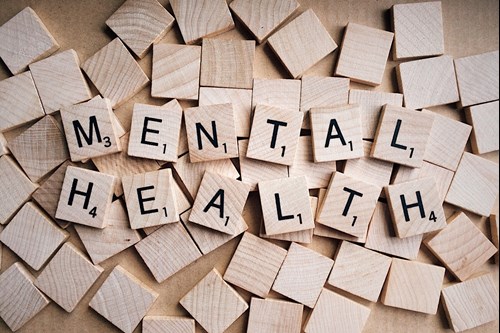The findings show an alarming 90 percent of adults feel the nation is experiencing a mental health crisis, with young adults particularly vulnerable.

Mental health is a serious concern for the majority of adults across the country, according to the Mental Health in America survey conducted by CNN and the Kaiser Family Foundation (KFF). The survey examined both individual and familial experiences with mental health, polling more than 2,000 adults aged 18 and older from July 28-August 9.
A clear consensus: America is in a mental health crisis. When asked about specific mental health related issues, respondents selected the opioid epidemic as a leading mental health crisis in the United States, followed by mental health issues in children and teenagers, severe mental health issues in children and teenagers, anxiety or depression in adults, anxiety or stress caused by political events, and loneliness. Parents also expressed concerns around the pandemic’s negative impact on their children’s mental health.
Not only do most adults believe mental health in general is a serious issue across the country, but one in five adults rated their own mental health as “only fair” or “poor,” with leading stressors including finances, politics and current events, relationships with family and friends, and work. Younger adults, lower-income adults, those who identified as lesbian, gay, bisexual, or transgender, and those with physical health issues were more likely to rate their mental health negatively.
Additional concerning themes in the findings include:
Young adults reported more mental health troubles
- Thirty-four percent of adults under age 30 described their mental health as “only fair” or “poor,” compared to 19 percent of those age 30 and older
- Fifty-two percent of young adults said they “always” or “often” felt anxious (compared to 28 percent over age 30), 33 percent said they have “always” or “often” felt depressed (compared to 18 percent over age 30), and 32 percent said they’ve “always” or “often” felt lonely (compared to 18 percent over age 30)
- Thirty-five percent of young adults said their mental health has interfered with their ability to work or engage in other activities, compared to 16 percent of those over age 30
Mental health issues impact an entire family
- Half of the adults surveyed (51 percent) have experienced mental health issues within their family
- Nearly half of those respondents (46 percent) said their family member’s struggles with mental health had a significant impact on their own mental health as well as a significant impact on their family relationships (42 percent)
- Twenty-two percent of adults said their family member’s mental health had a significant impact on their family’s finances
Most adults are unaware of the new 988 National Suicide Prevention Lifeline
- More than half of adults (56 percent) have not heard about the new National Suicide Prevention Lifeline implemented in July to connect callers with mental health services
- Given many are unaware of the lifeline, half of the respondents (52 percent) believe calling 911 would help the situation, whereas 27 percent feel it would do more harm than good
- Once informed about the lifeline, 85 percent of adults said they were “somewhat” likely to call 988 if they or a loved one were experiencing a mental health crisis


